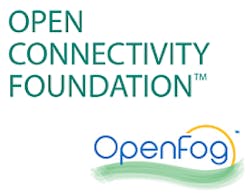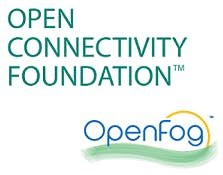New tech groups take aim at fog, connectivity standards
According to a statement, the OCF “intends to work towards unlocking the opportunity of the future global IoT segment, accelerate industry innovation and help all developers and companies create solutions that map to a single, open IoT interoperability specification. Ultimately, with OCF specifications, protocols and open source projects, a wide-range of consumer, enterprise and embedded devices and sensors from a variety of manufacturers, can securely and seamlessly interact with one another.”
Composable, interoperable fog
Meanwhile, another tech leader coalition including ARM, Cisco, Dell, Intel, Microsoft Corp. and the Princeton University Edge Laboratory have come together to form the OpenFog Consortium. The goal of this consortium is to accelerate the deployment of fog technologies through the development of an open architecture, core technologies including the capabilities of distributed computing, networking, and storage as well as the leadership needed to realize the full potential of IoT. The OpenFog architecture is intended to bring seamless intelligence from the cloud to IoT endpoints using an open standardized approach. The founding members will build initial frameworks and architectures that reduce the time required to deliver the end-to-end IoT scenarios.
“The OpenFog Consortium promises to be the beacon of multinational and multi-corporation interoperability and composability,” said OpenFog President Jeff Fedders. “The mission of the organization is to drive assurance architectures and disciplines for accurate and trustworthy information exchange. Efficient and reliable networks combined with identifiable, secure, and private information flows between clouds, endpoints, and services are fundamental requirements for OpenFog technologies. The goal of the OpenFog Consortium is to specify and test these principles.”
Fog computing technology distributes the resources and services of computation, communication, control, and storage closer to devices and systems at or near the users. The OpenFog non-profit global consortium will drive industry and academic leadership in fog computing architectures with whitepapers, testbeds, and other deliverables that demonstrate best practices for interoperability and composability between cloud and edge architectures. By utilizing existing standards work and proven approaches, the consortium will reduce the time required to deliver the end-to-end IoT scenarios (technologies, architectures, testbeds, and business development) that the market is demanding.

